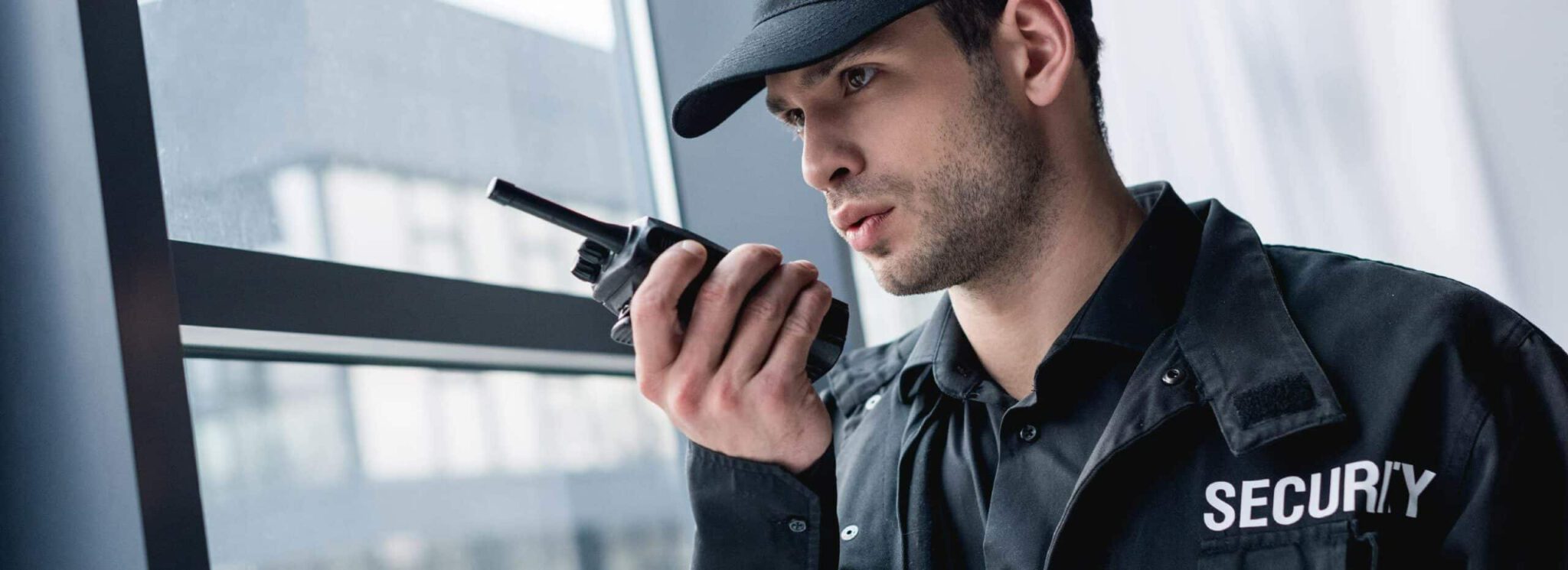What does it take to be a good security guard? Alertness? Yes. Honesty? Absolutely. Good communication skills? A must. These are all important traits for someone you hire to protect your valuable assets. However, there is so much more that goes into making a good guard than a laundry list of positive attributes.
Is Your Guard Effective in a Dangerous Situation
Our news feeds have been filled with stories about what’s been taking place across the U.S. in recent days. Peaceful protests have given way to riots and looting across the country. Caught in the middle are security personnel who are torn between doing their job and trying to protect their own life.
In this video, a Stealth security operator observed multiple individuals causing damage to a downtown Dallas office building.
Our monitoring operator attempted to contact the security guard, but he had fled his post. After leaving a voicemail for the guard, the operator contacted police. Officers were already on the scene moving the individuals away from the area.
Security Guard Training Standards
Despite playing a vital role in protecting valuable assets, security guards are still human. Basic instincts tend to take over in times of trouble. As seen in the video, the impulse to run from danger took hold. Where does that leave your property or place of business?
Training is one way to better prepare guards for stressful situations. However, the security guard industry is plagued by inadequate training standards. This is partly due to the huge increase in the number of employed guards. According to Michael Bryant, the head of the Canadian Civil Liberties Association, there are more security guards than police officers in Canada. Mr. Bryant adds that the training and regulations haven’t kept up with the growth of the industry. A lack or absence of training can put a property and its people at risk, as well as endanger the life of the guard.
The same problems plague the United States. In the U.S., each state has its own requirements for licensed security guards. Most of the standards fall short, however. Many states recommend security guards receive approximately eight hours of pre-assignment training, eight to sixteen hours of on-the-job training, and eight hours of annual training. In other words, a person can obtain a license to be a guard in approximately 14 days.
How Training Can Promote Efficiency and Help Mitigate Liability
These short training courses don’t provide adequate time for would-be guards to receive many of the skills they need to properly respond to a volatile situation. A good training program will expose the guards to stressful scenarios in a controlled environment. The more they are exposed to these types of situations, the better equipped they will be to handle them.
Here are a few areas where added training can be beneficial:
Fight or Flight
We are all born with the instinct to either “fight” or “run” from a perceived threat. Security guards are always faced with potential danger. How the body responds to pressure will vary from person to person. The more training a security guard has ahead of time, the more adept he or she can become in managing their own response. You don’t want the first time your guard faces a stressful situation to occur during a real incident.
Self-Defense Skills
Security guards must often think on their feet. That makes it crucial to have some knowledge and training in self defense to allow for the most responsible decisions. Ironically, many states do not require self-defense training. To really get the most out of it, self defense tactics must be practiced on an ongoing basis.
Weapons Training
Some states require or allow guards to carry non-lethal weapons. These include pepper spray, a night stick and stun guns. Again, the training requirements differ by state. Armed security guards are required to complete firearms training and must be current on all relevant laws in using firearms. These weapons should only be used for self-defense. It’s important to note the firearms training required by the state simply provides a passing score. It doesn’t measure shooting skill accuracy. Some feel it is not adequate in prepping a guard to use a weapon in a real-world situation.
Live Video Monitoring
Guards can be expensive security solutions. In addition to their salaries, ongoing training is a must. Those classes can be costly, as well. There’s no question, the presence of a security guard on site can be reassuring to the property owner, managers, tenants and visitors. However, as you saw in the video, they can’t always be trusted to handle stressful and dangerous situations in the most appropriate way. This could lead to injury and even death of the guard, as well as those he is hired to protect. The annual nonfatal injury rate for security officers in the U.S. was 14 per 1,000 full-time employees in 2017.
Live video surveillance is a safe, successful and more cost-effective alternative to guards. Trained security operators, located in a remote monitoring center, can safely monitor your property during even the most vulnerable situations. Our solution can augment or replace guards to keep watch on activity and stay in constant communication with the authorities, no matter what happens.
Remote video surveillance offers may advantages over security guards, including proactive response, extensive site coverage, quicker response times, reliability and cost savings. Our solution can save up to 60% on your security spend when compared to guards.
If you would like a more reliable security solution for your property and would like more information, contact us.

